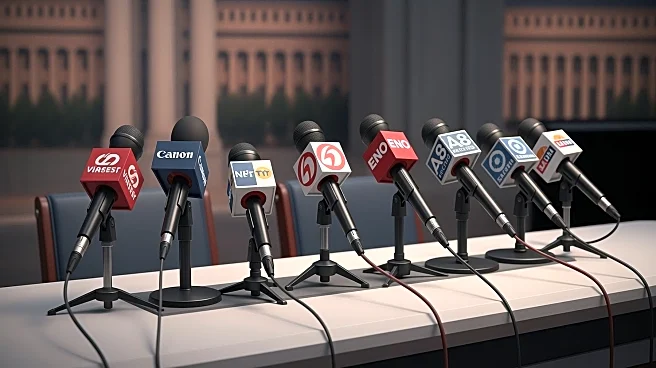What's Happening?
The Pentagon has introduced a new media policy that imposes strict limitations on journalists, requiring them to sign agreements to report only on information officially authorized for release. This policy has been
met with resistance from various media outlets, who argue that it undermines journalistic freedom and transparency. The policy aims to control the dissemination of information, potentially affecting the public's access to unbiased news. The move has sparked a debate over the balance between national security and the freedom of the press, with media organizations refusing to comply with the new rules.
Why It's Important?
The refusal of media outlets to adhere to the Pentagon's new press rules highlights a significant tension between government control and media freedom. This development is crucial as it could set a precedent for how information is managed and disseminated in the U.S., impacting public trust in both media and government institutions. The policy could lead to reduced transparency and hinder the media's role in holding power accountable, affecting democratic processes and public discourse. Media organizations stand to lose their ability to report independently, while the government may face backlash for perceived censorship.
What's Next?
As media outlets continue to reject the Pentagon's policy, discussions and negotiations may ensue to find a compromise that respects both national security concerns and press freedom. Legal challenges could arise, potentially leading to court rulings that define the boundaries of such media restrictions. Stakeholders, including civil rights groups and journalism associations, are likely to advocate for the protection of press freedoms, influencing public opinion and policy decisions.
Beyond the Headlines
This situation raises ethical questions about the role of government in regulating media content and the potential consequences for democratic society. Long-term implications could include shifts in how media organizations operate and their relationship with government entities, possibly affecting international perceptions of U.S. media freedom.










